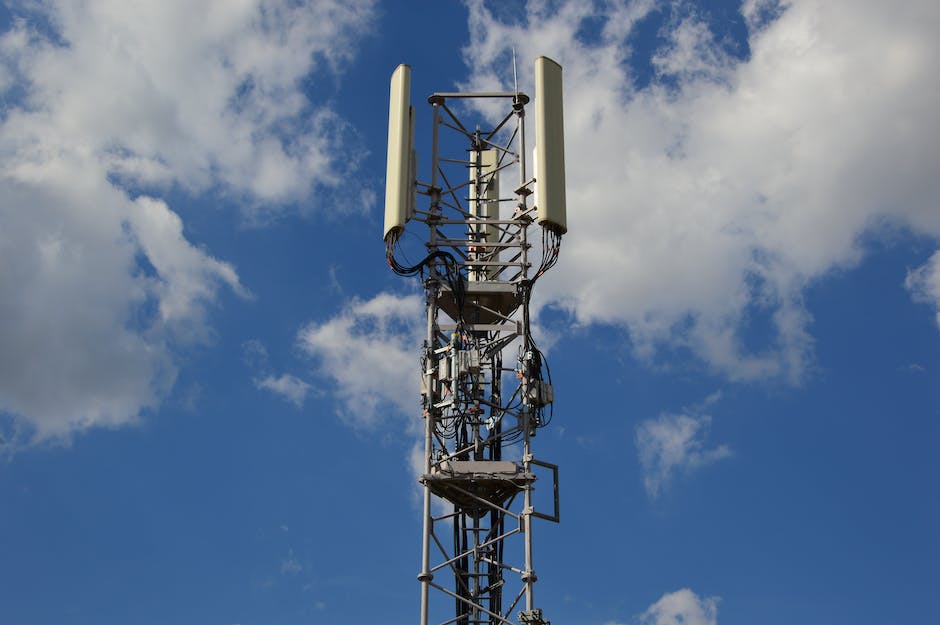Table of Contents
Navigating the 5G revolution: Leading the way in a connected world.
Introduction
Leadership in the Age of 5G: Expectations and Challenges for 2023
The advent of 5G technology has brought about significant advancements and transformations across various industries. As we approach the year 2023, the expectations and challenges for leadership in this age of 5G are becoming increasingly prominent. With the potential to revolutionize connectivity, communication, and data transfer, leaders must navigate a rapidly evolving landscape to harness the full potential of 5G. This article explores the expectations and challenges that leaders are likely to face in 2023 as they strive to leverage 5G technology for organizational success.
The Impact of 5G on Leadership Styles and Strategies

The advent of 5G technology is set to revolutionize various industries, and leadership is no exception. As we approach the year 2023, it is crucial for leaders to understand the expectations and challenges that come with this new era of connectivity. The impact of 5G on leadership styles and strategies cannot be underestimated, as it will require leaders to adapt and evolve in order to thrive in this fast-paced and interconnected world.
One of the key expectations for leaders in the age of 5G is the ability to navigate and leverage the vast amount of data that will be available. With 5G, the speed and capacity of data transmission will increase exponentially, enabling leaders to access real-time information and make data-driven decisions. This will require leaders to develop a strong analytical mindset and the ability to interpret complex data sets. Additionally, leaders will need to invest in technologies and tools that can effectively process and analyze this data, as well as train their teams to do the same.
Another expectation for leaders in the age of 5G is the need for agility and adaptability. With the increased connectivity and speed that 5G brings, industries will experience rapid changes and disruptions. Leaders will need to be flexible and open to new ideas, as well as quick to respond to emerging trends and challenges. This will require a shift in leadership styles, moving away from traditional hierarchical structures towards more collaborative and agile approaches. Leaders will need to empower their teams to take ownership and make decisions, fostering a culture of innovation and adaptability.
However, along with these expectations come a set of challenges that leaders must navigate. One of the main challenges is the potential for information overload. With the increased connectivity and data availability, leaders may find themselves overwhelmed with information, making it difficult to prioritize and make informed decisions. Leaders will need to develop strong filtering mechanisms and focus on the most relevant and actionable data. This will require a balance between leveraging technology and relying on human intuition and judgment.
Another challenge for leaders in the age of 5G is the potential for increased cybersecurity threats. With the proliferation of connected devices and the Internet of Things (IoT), the attack surface for cybercriminals will expand. Leaders will need to prioritize cybersecurity and invest in robust systems and protocols to protect their organizations and data. This will require a proactive approach, with leaders staying up to date with the latest cybersecurity trends and collaborating with experts in the field.
In conclusion, the impact of 5G on leadership styles and strategies is significant. Leaders in the age of 5G will need to navigate the vast amount of data available, develop an analytical mindset, and make data-driven decisions. They will also need to be agile and adaptable, responding quickly to emerging trends and disruptions. However, leaders must also be mindful of the challenges that come with this new era, such as information overload and cybersecurity threats. By embracing these expectations and addressing the challenges head-on, leaders can position themselves and their organizations for success in the age of 5G.
Navigating the Challenges of Leading in a 5G-Enabled World
Navigating the Challenges of Leading in a 5G-Enabled World
As we approach the year 2023, the world is on the cusp of a technological revolution with the widespread deployment of 5G networks. This new era of connectivity brings with it a host of opportunities and challenges for leaders across industries. In order to effectively navigate this rapidly changing landscape, leaders must be prepared to adapt and embrace the potential that 5G technology offers.
One of the key challenges that leaders will face in the age of 5G is the need to stay ahead of the curve. With the increased speed and capacity of 5G networks, businesses will be able to collect and analyze vast amounts of data in real-time. This presents an opportunity for leaders to make data-driven decisions and gain a competitive edge. However, it also means that leaders must be proactive in staying up to date with the latest technological advancements and understanding how they can be leveraged to drive innovation within their organizations.
Another challenge that leaders will face is the need to foster a culture of collaboration and agility. 5G technology has the potential to transform the way we work, enabling seamless communication and collaboration across teams and locations. However, in order to fully harness the power of 5G, leaders must create an environment that encourages collaboration and embraces change. This may require rethinking traditional hierarchies and adopting a more flexible approach to work.
Additionally, leaders must be prepared to address the ethical implications of 5G technology. As the Internet of Things (IoT) becomes more prevalent, leaders will need to navigate the complex landscape of data privacy and security. With 5G networks connecting billions of devices, the potential for data breaches and cyberattacks increases exponentially. Leaders must prioritize cybersecurity and ensure that their organizations have robust measures in place to protect sensitive information.
Furthermore, leaders must also consider the impact of 5G on the workforce. While 5G technology has the potential to automate certain tasks and increase efficiency, it also raises concerns about job displacement. Leaders must be mindful of the potential impact on their employees and take proactive steps to reskill and upskill their workforce. This may involve investing in training programs and creating opportunities for employees to learn new skills that will be in demand in a 5G-enabled world.
In conclusion, the age of 5G presents both exciting opportunities and unique challenges for leaders. To navigate this rapidly changing landscape, leaders must stay ahead of the curve, foster a culture of collaboration and agility, address ethical implications, and consider the impact on the workforce. By embracing these challenges and leveraging the potential of 5G technology, leaders can position their organizations for success in the years to come. The future is 5G, and leaders must be prepared to lead in this new era of connectivity.
Developing Effective Leadership Skills in the Era of 5G
Developing Effective Leadership Skills in the Era of 5G
As we approach the year 2023, the age of 5G technology is upon us, bringing with it a host of expectations and challenges for leaders in various industries. The advent of 5G promises lightning-fast internet speeds, increased connectivity, and a plethora of new opportunities for businesses. However, with these advancements come the need for leaders to adapt and develop effective leadership skills to navigate this rapidly changing landscape.
One of the key challenges that leaders will face in the era of 5G is the need to embrace and understand emerging technologies. With 5G set to revolutionize industries such as healthcare, manufacturing, and transportation, leaders must stay abreast of the latest developments and be able to leverage these technologies to drive innovation within their organizations. This requires a willingness to learn and adapt, as well as the ability to identify and seize opportunities presented by 5G.
In addition to technological advancements, leaders must also be prepared to navigate the complexities of a hyper-connected world. With 5G enabling the Internet of Things (IoT) to reach its full potential, leaders will need to manage an increasingly interconnected network of devices and systems. This will require a deep understanding of cybersecurity and data privacy, as well as the ability to effectively communicate and collaborate with stakeholders across different industries and sectors.
Furthermore, leaders in the age of 5G must possess strong communication and collaboration skills. With the increased connectivity and speed that 5G brings, leaders will need to be able to effectively communicate their vision and goals to their teams, as well as collaborate with colleagues and partners across different locations. This will require the ability to adapt communication styles to different audiences and leverage technology to facilitate collaboration and knowledge sharing.
Another challenge that leaders will face in the era of 5G is the need to foster a culture of innovation and agility within their organizations. With 5G enabling faster decision-making and real-time data analysis, leaders must create an environment that encourages experimentation and risk-taking. This will require a shift in mindset from traditional hierarchical structures to more agile and flexible ways of working, where employees are empowered to take ownership of their work and contribute to the organization’s overall success.
To develop effective leadership skills in the era of 5G, leaders must also prioritize continuous learning and development. With technology evolving at an unprecedented pace, leaders must be willing to invest in their own growth and stay ahead of the curve. This can be achieved through attending industry conferences, participating in online courses, and seeking out mentorship and coaching opportunities. By continuously learning and adapting, leaders can ensure that they are equipped with the skills and knowledge needed to lead their organizations successfully in the age of 5G.
In conclusion, the era of 5G brings both expectations and challenges for leaders across various industries. To navigate this rapidly changing landscape, leaders must embrace emerging technologies, navigate the complexities of a hyper-connected world, possess strong communication and collaboration skills, foster a culture of innovation and agility, and prioritize continuous learning and development. By developing these effective leadership skills, leaders can position themselves and their organizations for success in the age of 5G.
Harnessing the Potential of 5G Technology for Leadership Success
The advent of 5G technology has brought about a new era of connectivity and innovation. As we approach the year 2023, it is crucial for leaders to understand the expectations and challenges that come with harnessing the potential of 5G technology for leadership success.
One of the key expectations for leaders in the age of 5G is the ability to leverage the increased speed and capacity of this technology to drive productivity and efficiency within their organizations. With 5G, leaders can expect faster download and upload speeds, reduced latency, and increased network capacity. This means that tasks that previously took hours can now be completed in minutes, allowing leaders to make quicker decisions and respond to market changes in real-time.
However, with these expectations come challenges. One of the main challenges for leaders in the age of 5G is the need to adapt to the rapid pace of technological advancements. As 5G continues to evolve, leaders must stay updated on the latest developments and understand how they can leverage these advancements to stay ahead of the competition. This requires a commitment to continuous learning and a willingness to embrace change.
Another challenge for leaders in the age of 5G is the need to ensure the security and privacy of their organization’s data. With the increased connectivity that 5G brings, there is also an increased risk of cyberattacks and data breaches. Leaders must invest in robust cybersecurity measures and educate their employees on best practices to mitigate these risks. Additionally, leaders must navigate the ethical implications of collecting and analyzing vast amounts of data, ensuring that they are using this data responsibly and in compliance with privacy regulations.
Furthermore, leaders must also consider the impact of 5G on their workforce. With the increased connectivity and automation that 5G enables, there is a potential for job displacement. Leaders must proactively address this issue by reskilling and upskilling their employees to ensure they are equipped with the necessary skills to thrive in the age of 5G. Additionally, leaders must foster a culture of innovation and adaptability within their organizations, encouraging employees to embrace change and explore new opportunities that arise from 5G technology.
In conclusion, the age of 5G presents both expectations and challenges for leaders. To harness the potential of 5G technology for leadership success, leaders must leverage the increased speed and capacity of 5G to drive productivity and efficiency within their organizations. However, they must also adapt to the rapid pace of technological advancements, ensure the security and privacy of their organization’s data, and address the impact of 5G on their workforce. By understanding and addressing these expectations and challenges, leaders can position themselves and their organizations for success in the age of 5G.
Q&A
1. What are the expectations for leadership in the age of 5G in 2023?
Expectations for leadership in the age of 5G in 2023 include the ability to navigate and leverage the opportunities presented by advanced connectivity, drive innovation, adapt to rapidly changing technology, and effectively lead teams in a digital and interconnected world.
2. What are the challenges for leadership in the age of 5G in 2023?
Challenges for leadership in the age of 5G in 2023 include managing the complexities of implementing and integrating 5G technology, addressing cybersecurity risks, ensuring privacy and data protection, fostering collaboration across industries, and upskilling the workforce to meet the demands of a digital economy.
3. How can leaders navigate the expectations and challenges of 5G in 2023?
Leaders can navigate the expectations and challenges of 5G in 2023 by staying informed about the latest developments in 5G technology, fostering a culture of innovation and adaptability within their organizations, investing in cybersecurity measures, collaborating with industry partners, and providing ongoing training and development opportunities for their teams.
4. What skills and qualities will be important for leaders in the age of 5G in 2023?
Important skills and qualities for leaders in the age of 5G in 2023 include technological literacy, strategic thinking, adaptability, effective communication, collaboration, problem-solving, and the ability to inspire and motivate teams in a rapidly evolving digital landscape.
Conclusion
In conclusion, leadership in the age of 5G is expected to bring about significant changes and challenges by 2023. The widespread adoption of 5G technology will require leaders to adapt and leverage its capabilities to drive innovation, enhance connectivity, and transform industries. However, leaders will also face challenges such as managing cybersecurity risks, addressing privacy concerns, and ensuring equitable access to 5G networks. To succeed in this rapidly evolving landscape, leaders must be proactive, agile, and capable of navigating the complexities of the 5G era.




